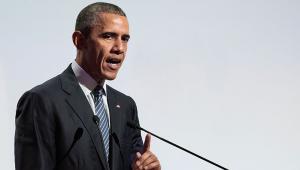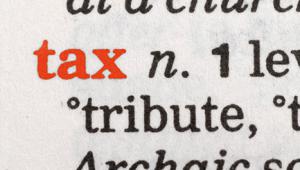web-panamacity_shutterstock_343698863.jpg

Panama City, Panama. A recent leak of a trove of documents from Panamanian law firm Mossack Fonseca revealed how the world's rich and powerful use tax havens to shirk their dues, putting tax avoidance high on the agenda.
The proposals include the creation of public beneficial ownership registers, cross-border information sharing and “robust” laws targeting lawyers and tax advisors that help their clients shirk their dues by stashing money offshore.
The commission had already announced new rules to combat corporate tax avoidance last month, but said that the Panama Papers had unveiled a set of new challenges.
“The recent leaks exposed loopholes that still allow tax evaders to hide funds offshore,” explained Pierre Moscovici, commissioner for economic and financial affairs. “These loopholes must be closed and our measures to stamp out tax abuse must be intensified.”
The leak of 11.5 million documents from Panamanian-based law firm Mossack Fonseca laid bare how the world’s rich and powerful are able to exploit weak international laws to set up opaque companies in tax havens and keep their wealth virtually untouched by tax.
The commission’s plans target this kind of tricky manoeuvre. It said the rules regarding beneficial ownership would be tightened and extended in scope to cover the passive companies at the centre of the Panama Papers scandal, as well as other secretive companies and trusts.
Tax authorities will be given access to this information as well as existing details on the true owners of secretive companies, trusts and funds already collected under European Union anti-money laundering initiatives.
A statement also suggested that full public access could be granted for “certain information of the beneficial ownership registers on companies and business-related trusts”, but that information on “all other trusts” would be included in national registers available to those who can show a “legitimate interest”.
Moscovici also said the commission will develop a new initiative to enable member states’ tax authorities to automatically exchange the information they collect on beneficial ownership, take a tougher stance against tax havens and develop a blacklist of countries “that do not play fair in the global tax arena” or that do not respect standards in good governance.
“We must create more transparency around the activities of tax advisors,” Moscovici continued, “and more scrutiny of those that promote aggressive tax planning schemes.”
While he nodded to the mandatory obligations set out in the Base Erosion and Profit Shifting recommendations from policy forum OECD, he said that very few countries had followed this up and the EU could be an “inspiration to its international partners”.
He called for “robust laws to hold tax advisors to account”, but revealed few details of what these might look like ahead of consultations and discussions to identify the best approach to this “highly complex area”. He promised to launch a public consultation “very soon”.
The measures were announced as part of a broader package to toughen up action against money laundering and terrorist financing.
Other proposals would give member states more oversight over virtual currencies like Bitcoin and other anonymous payment methods such as prepaid cards, and force virtual currency exchange platforms and wallet providers to do due diligence.
“The fight against tax evasion and avoidance cannot be a static one,” said Moscovici. “It must evolve and react to new challenges and circumstances. That is exactly what we have done today, with these initiatives, which I believe are a robust response to the wide-scale abuse that was exposed.”
However, Laure Brillaud, policy officer for anti-money laundering at Transparency International EU said major loopholes remain.
“Once again the commission has stopped short of full transparency around trusts,” she said. “This is a bold step but it’s not the brave leap needed to end this system of secrecy which fuels impunity.”












